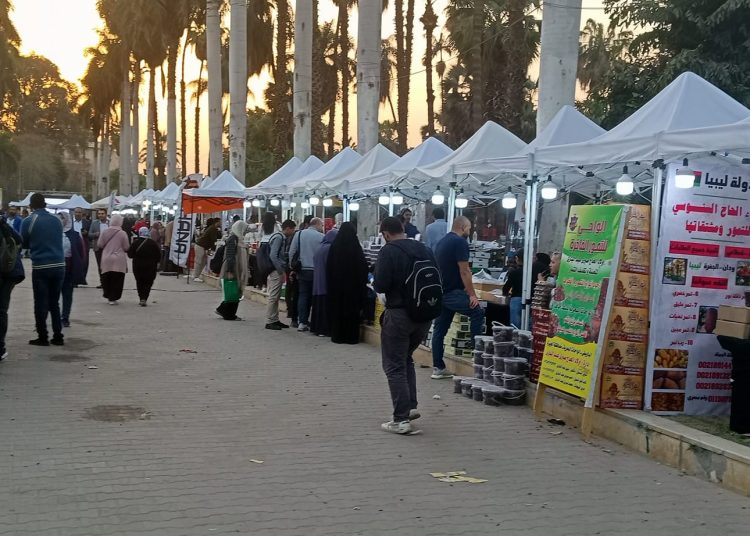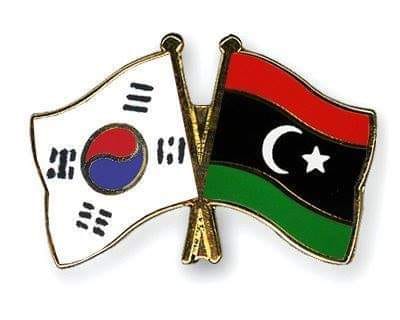Libyan dates, represented by Al-Hajj Al-Senussi Group for the Production of Dates, won several top prizes at the Cairo International Dates Festival in early March.
Speaking exclusively to Libya Herald, Mohamed Al-Haj Ahmed, one of the biggest producers and exporters of Libyan dates from his native Wadan and Al-Jufra region, said that their group obtained their top prizes by participating with the variety Halima-Wadan dates, which are characterized by high quality and good taste. The Al-Qour Company was awarded the Shield of Excellence as the best wet date, while the Digla-Awjla (deglet) dates ranked second, and the Digla-Wadan dates ranked third among participations from several date-producing countries in the world.
Some Libyan varieties only grow in Libya
Ahmed said there was great demand for Libyan dates within the Cairo Fair, due to the high quality, natural ripeness and cleanliness of Libyan dates. But it was also due to the lack of the existence of the many Libyan varieties that grow in the Libyan environment in the rest of the date-producing countries. He added that Libya has many varieties that can only grow in Libya. It is the exclusive property of the Libyan farmer.
Libyan dates have won several international prizes
Ahmed added that their group has participated in many exhibitions specialized in dates around the world, including Malaysia, Turkey, Indonesia, the UAE, Oman, Egypt and Saudi Arabia. They have also participated in food exhibitions in Italy, France and Germany during the past years. He said in all of these Libyan dates achieved advanced ranks and won valuable prizes because Libyan dates are a strong and well-deserved competitor to any other dates around the world.
Libyan dates exported abroad only when production surpasses local demand
Regarding the export of Libyan dates abroad, Ahmed confirmed that there are a number of date producers who export many varieties of Libyan dates to European countries and Canada under the supervision of the Libyan Export Promotion Centre (LEPC) and the follow-up of the Ministry of Economy and Trade. Exports, however, are only permitted by the Libyan authorities when there is sufficient production for local consumption and at good prices that do not affect export abroad. In the event of a lack of production and insufficient supply for local consumption, the state imposes restrictions on the export of dates so that prices do not rise inside Libya.
Government offers no support
On government support for the cultivation of palm trees and increasing the production of dates, he said that palm farmers suffer from the absence of state support through the Ministry of Agriculture. This is especially with regard to providing fertilizers and agricultural equipment suitable for caring for date trees. In particular, the problem of the spread of agricultural epidemics, especially the palm mite insect, which caused the loss of hundreds of palm trees in areas Al-Jufra, the Wahat and most of the date plantations in Libya.
Need for Libyan-Egyptian trade agreements to export Libyan dates to Egypt
Speaking earlier to the Libyan state news agency LANA during the Cairo Festival, Ahmed had said that the quantities of his dates had ran out quickly at his stall as the Egyptian authorities had refused to allow him to import larger quantities to the show due to the lack of trade agreements signed between the two sides in this regard. He called on the Libyan authorities to activate trade agreements with the Egyptian side to allow the export of Libyan dates due to the high Egyptian demand for them, considering the Egyptian market an important potential market for Libyan dates.
He said the Libyan authorities need to consider dates a national resource.
Over 12 million date trees in Libya
With regard to the number of date trees in Libya, he stated that their number is not known precisely because there are no official statistics with the competent authorities since 2009. However, he estimated that their number exceeds 12 million trees, and this is due to the expansion of lands planted with date trees, especially in the southern regions where date oases are located.












